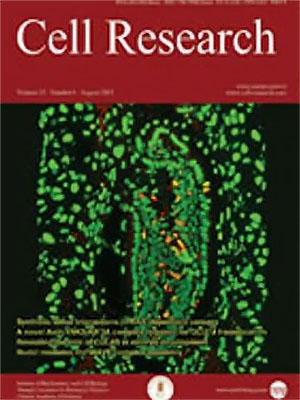
Volume 15, No 3, Mar 2005
ISSN: 1001-0602
EISSN: 1748-7838 2018
impact factor 17.848*
(Clarivate Analytics, 2019)
Volume 15 Issue 3, March 2005: 167-175
ORIGINAL ARTICLES
Indoleamine 2, 3-dioxygenase (IDO) is essential for dendritic cell activation and chemotactic responsiveness to chemokines
Shih Ling HWANG1, Nancy Pei-Yee CHUNG2, Jacqueline Kwai-Yi CHAN2, Chen-Lung Steve LIN2,*
1Department of Surgery, Kaohsiung Medical University, Kaohsiung, Taiwan, China
2Department of Surgery, The University of Hong Kong Medical Centre, Queen Mary Hospital, Pokfulam Road, Hong Kong SAR, China
Correspondence: Chen-Lung Steve LIN(clin@hkucc.hku.hk)
Indoleamine 2, 3-dioxygenase (IDO) is a rate-limiting enzyme for the tryptophan catabolism. In human and murine cells, IDO inhibits antigen-specific T cell proliferation in vitro and suppresses T cell responses to fetal alloantigens during murine pregnancy. In mice, IDO expression is an inducible feature of specific subsets of dendritic cells (DCs), and is important for T cell regulatory properties. However, the effect of IDO and tryptophan deprivation on DC functions remains unknown. We report here that when tryptophan utilization was prevented by a pharmacological inhibitor of IDO, 1-methyl tryptophan (1MT), DC activation induced by pathogenic stimulus lipopolysaccharide (LPS) or inflammatory cytokine TNF-α was inhibited both phenotypically and functionally. Such an effect was less remarkable when DC was stimulated by a physiological stimulus, CD40 ligand. Tryptophan deprivation during DC activation also regulated the expression of CCR5 and CXCR4, as well as DC responsiveness to chemokines. These results suggest that tryptophan usage in the microenvironment is essential for DC maturation, and may also play a role in the regulation of DC migratory behaviors.
FULL TEXT | PDF
Browse 2191


